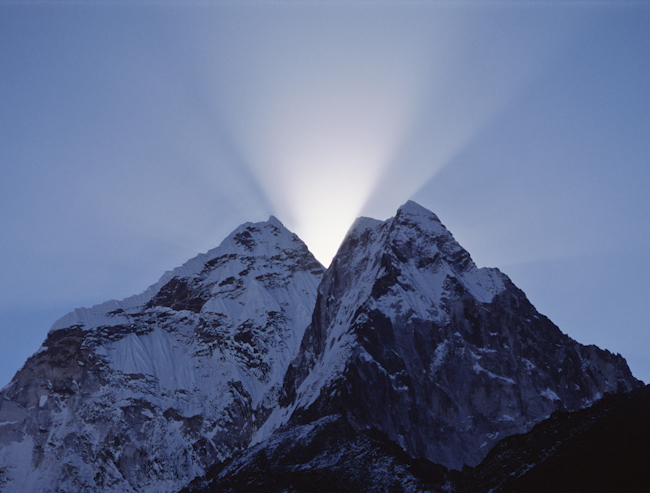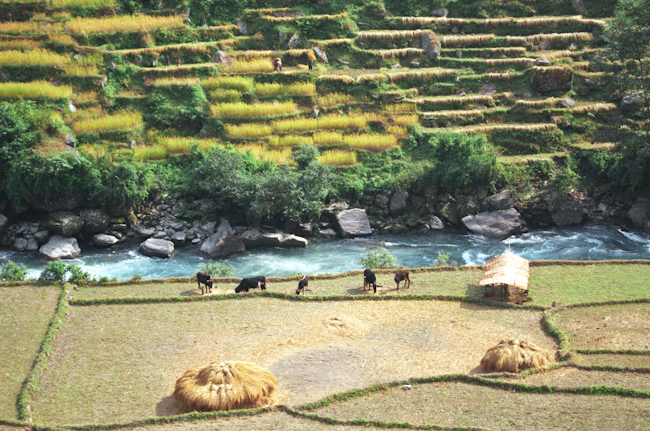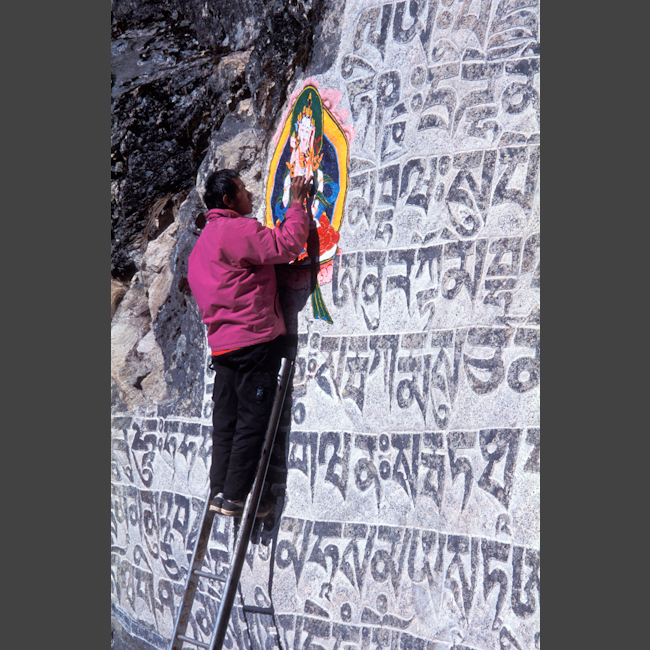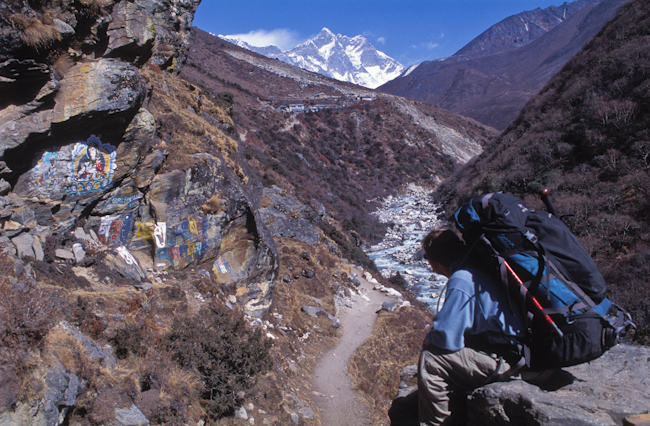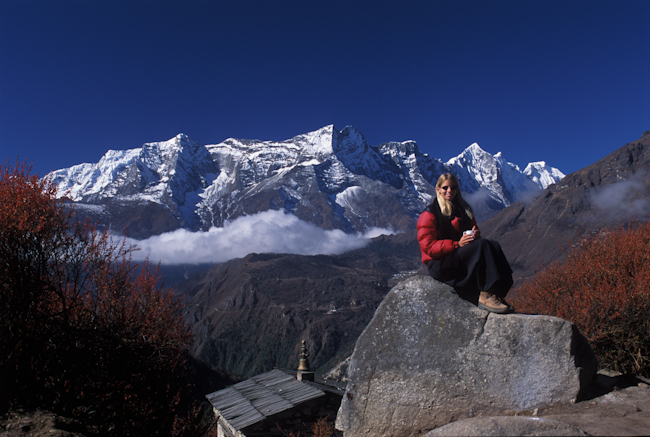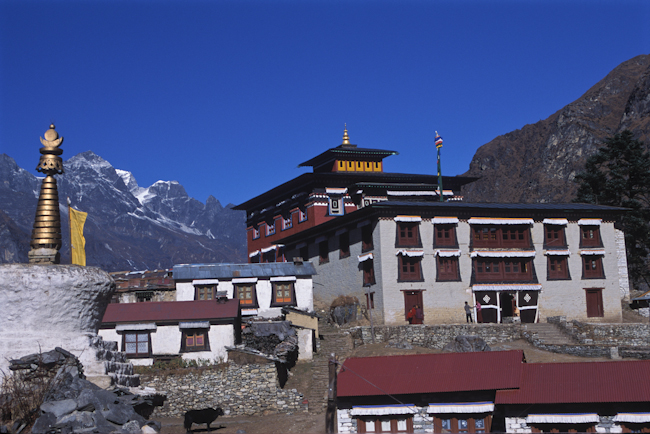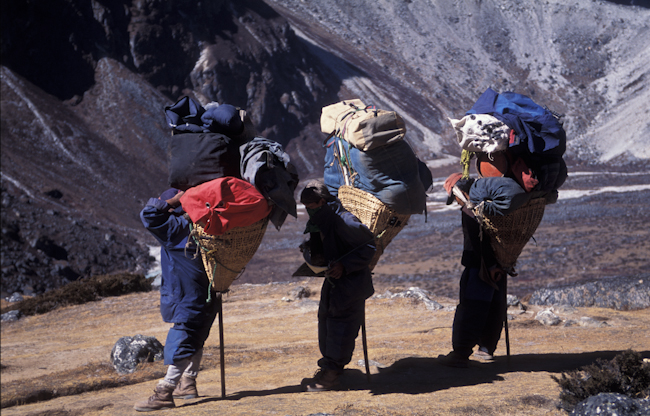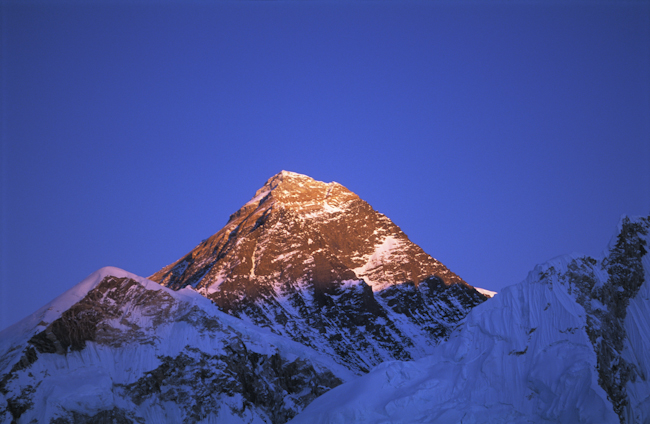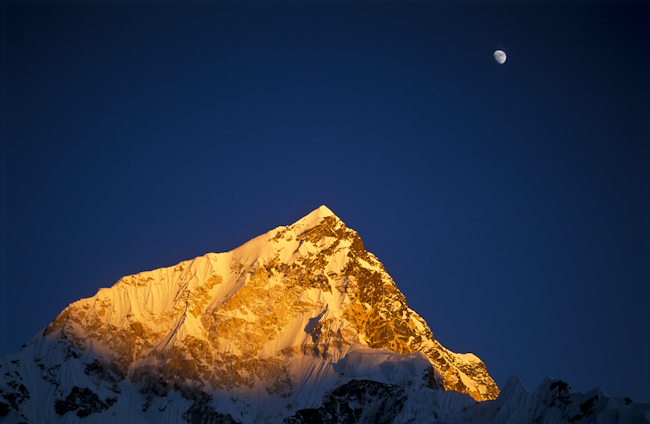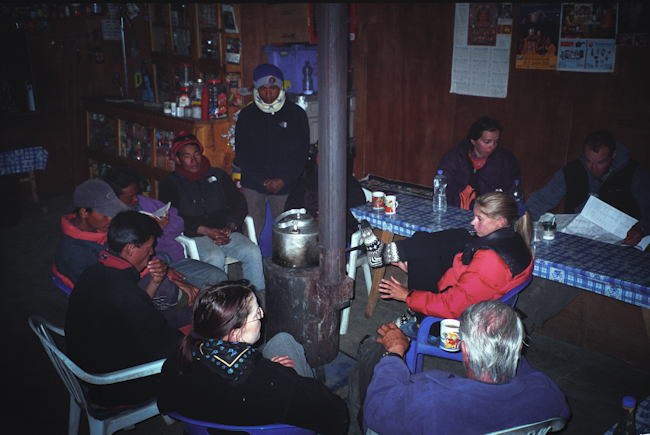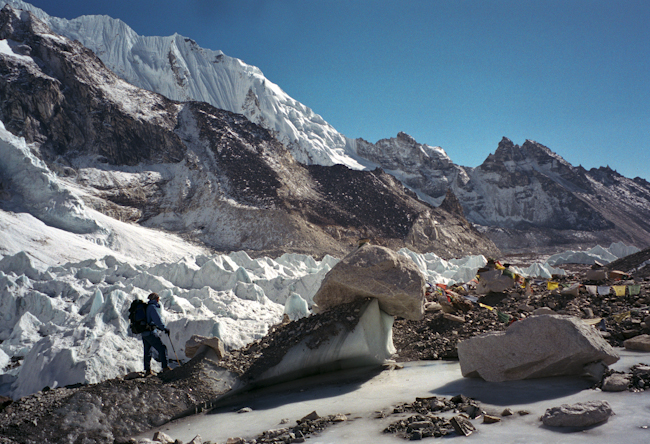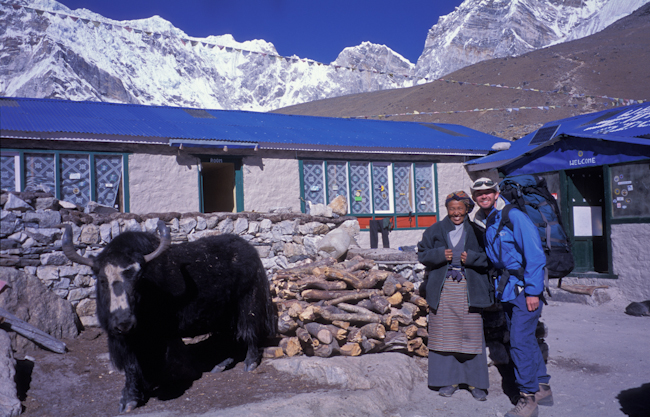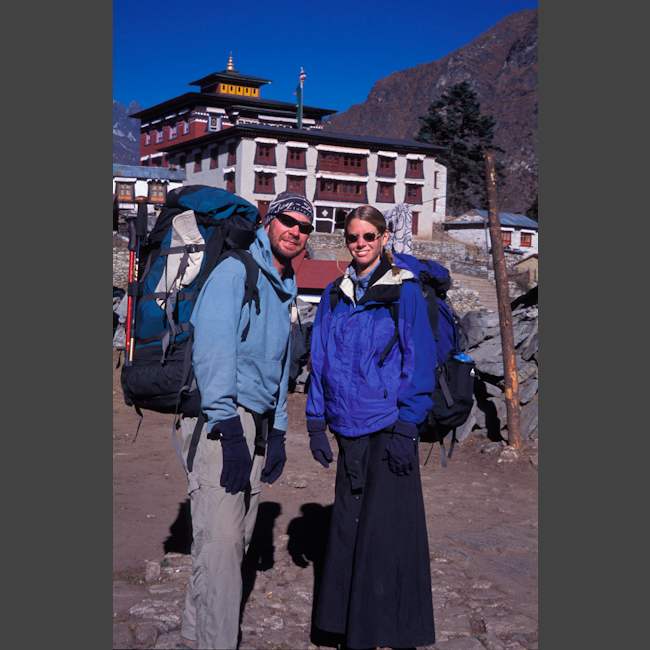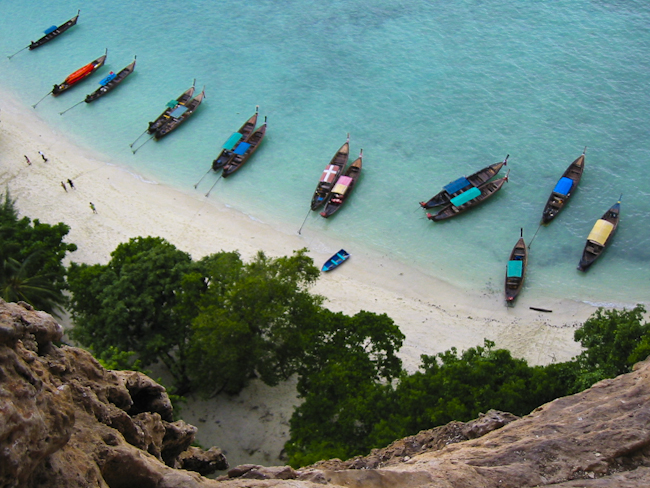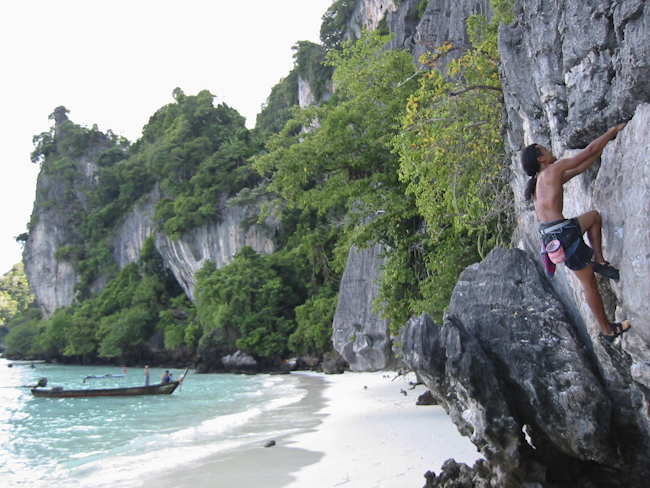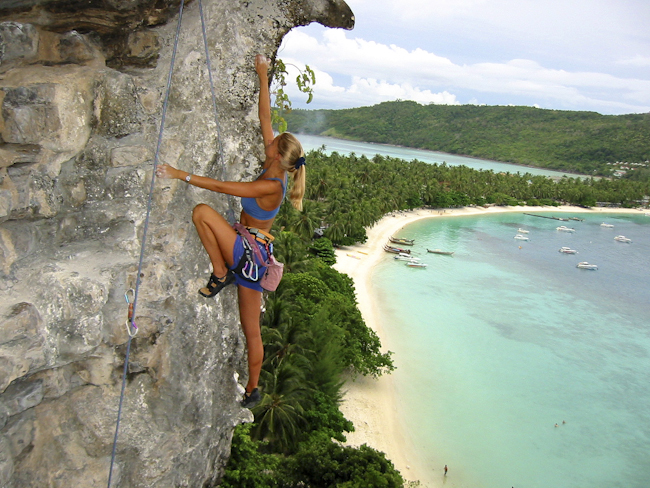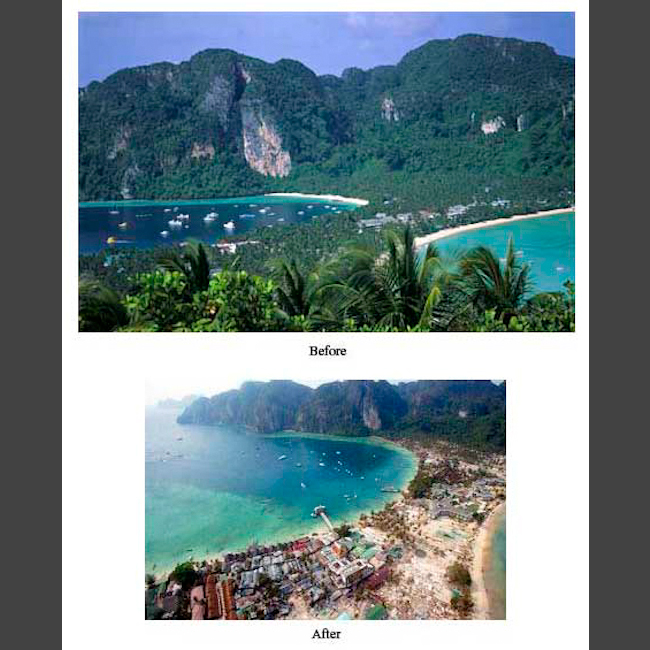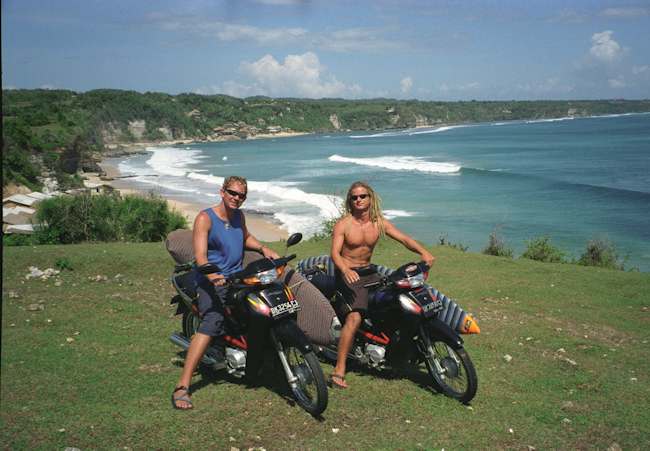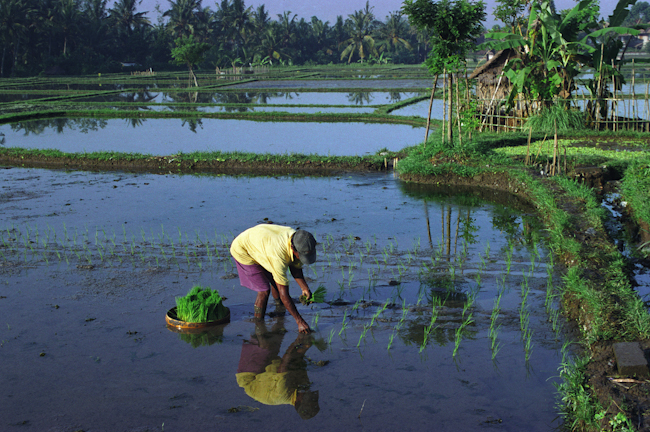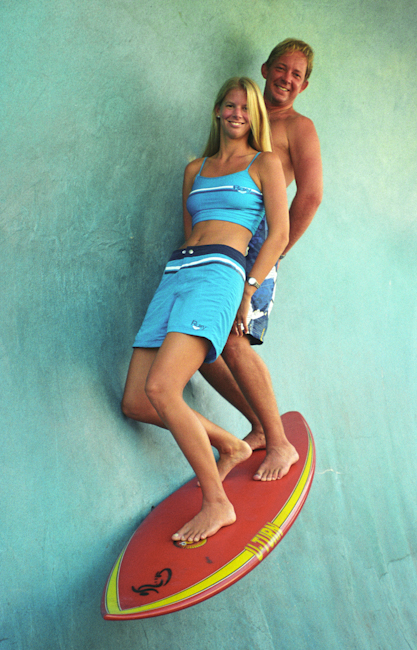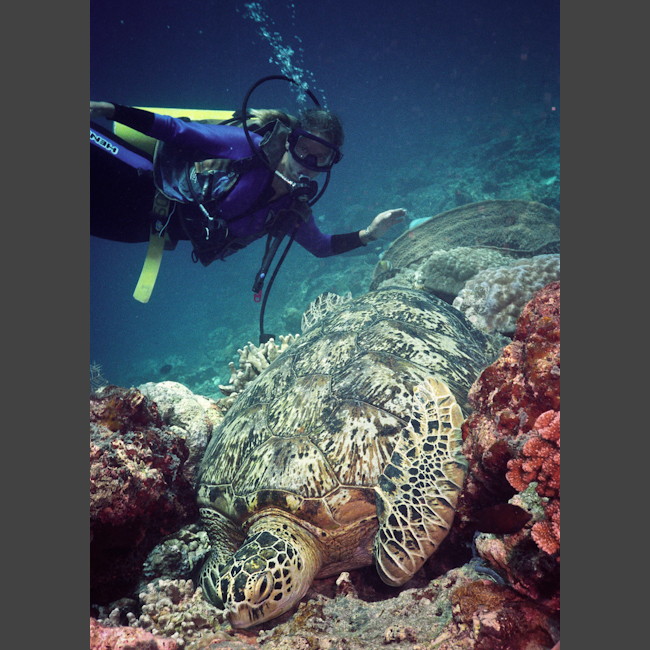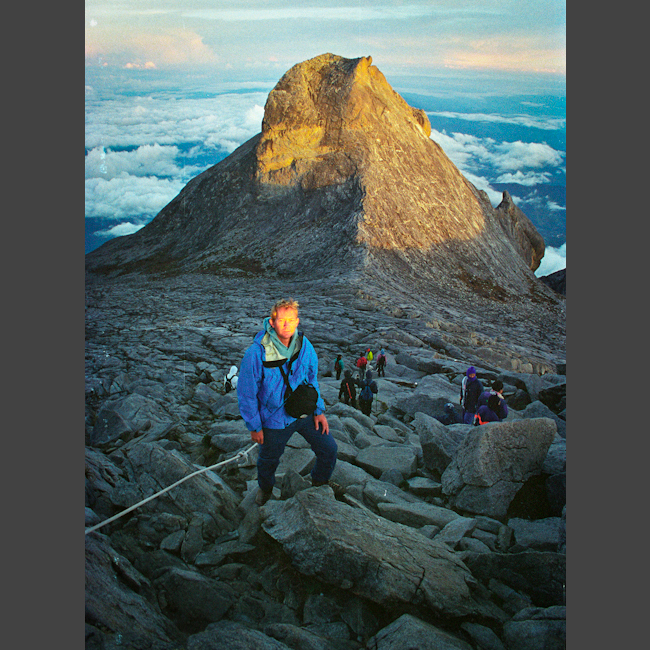Reflection on our journey: 10 travel truths
Our journey taught us many lessons that will change our lives although nothing we learned was revolutionary. The 10 travel truths we’ve listed below are simply basic philosophies we gradually embraced during our trip. We had played lip service to these principals beforehand, but we didn’t understand their relevance until we experienced it firsthand. As a natural result of long-term travel we changed our outlook on life; our biggest challenge will be applying this knowledge to our everyday lives at home.
#1. Freedom
It’s hard for us to imagine anything more freeing than leaving behind our jobs, family & friends, previous short and long-term responsibilities, and escaping our cultural/social/religious structures that normally influence our behavior. Without these familiar comforts or pressures we were able to discover what truly made us happy. We could choose where we wanted to go, what to do, how to spend our money, when to move on, and why we wanted to explore. Anything was possible. We never worried about getting stuck in a rut because we could always change our situation – everything was temporary.
On the flip side, we had to accept 100% responsibility for our own decisions. There was nobody else to blame if something went wrong since we made all the decisions in the first place. With no scapegoats or excuses available we were forced to realize that our only barriers were self-imposed.
Having unlimited choices can be overwhelming – initially we didn’t even know where to begin. During our first several month of travel we struggled with what we felt we should be doing, thus focused on making the most efficient use of our time so we wouldn’t miss seeing anything important. Once we abandoned our ‘must do’ list we were free to do what felt right and a lot happier as a result. Optimism replaced dread – we woke every morning excited to begin a new day of exploration.
#2. Be Here Now
This is a popular new catchphrase which describes an ageless adage – live life to its fullest. Gary Fontaine Ph.D. echoes this philosophy in his book “A Sense of Presence”, writing: “if you ask people in, ore returning from, strange lands what their experiences are like they report that everyday to them is real and vivid and they feel very alive. They report an experience of immediacy; a broad awareness of everything around them; and a feeling of being one with and responsive to the world. Together they constitute a sense of presence. It’s the signature of strange lands.”
To us, being here means enjoying the place you are at just for what it is; we didn’t try to change a place or compare it with our preconception of how we thought it would be. When we were in the South Pacific near a cyclone, in the Australian Outback in an unseasonably rainy year, or on an island in S.E. Asia during the monsoon season we simply enjoyed these unusual perspectives. We learned that there’s always a positive side to every circumstance and that each place has many moods, which define its character.
Focusing on now, or in other words concentrating on the present moment, helped us remain calm and peaceful in a variety of unpredictable situations. We learned there’s no sense in fretting about the past because it took away from our enjoyment of the current situation, and likewise since we never were certain what the future would bring we merely anticipated the unexpected to happen. Many Asians are surprisingly adept in achieving serenity despite their chaotic world. We especially noticed the influence of Buddhism, which emphasized that everything is transitory and the importance of practicing meditation to quiet the ‘monkey brain’ (the tendency for the mind to quickly jump around, constantly changing focus, never allowing time to follow a thought process to completion). Although we couldn’t come close to mastering control of our minds we did find ourselves more aware of our surroundings and better able to read people because we weren’t preoccupied.
#3 Power of Serendipity
Every seasoned traveler knows the most memorable and rewarding experiences happen unexpectedly. We can’t plan for serendipity to occur, but we can be prepared to take advantage of it. At first following others advise to just ‘go with the flow’ was difficult because we were reluctant to get out of our comfort zone. However once we let go of our need for control and our attachments, we opened the door for endless new possibilities.
One of the hardest decisions for us to make was leaving the security of our jobs, home, and possessions for 14 months of the unknown. Just by being limited to carrying everything in our backpacks we had to rid ourselves of attachments. Adventure travel is part chaos – we soon discovered that we couldn’t micromanage the details of our trip; we just had to accept how our journey unfolded. Its not that we didn’t keep a big picture in our minds of our goals (that would have been giving up responsibility), it’s just that we were often surprised by the process of how they were obtained.
Our first serendipitous encounter was in Polynesia when we learned that all the cheap fast ferryboats were ‘kaput’. By changing our plans and heading to Moorea to figure everything else out later we slowed down our pace and spent time getting to know Jay; he was on of the most memorable people we met, became a friend who we continuously reunited with throughout our trip, and a big influence in helping us get our journey started on the right foot. In Australia we were rescued from being blown out to sea in our dinghy by the friendliest group of Aussies one could hope for – it’s doubtful we would have taken the initiative to introduce ourselves otherwise. We never expected to find free lodging on a sailboat in Palau, but by just showing up in a place where everyone else pre-books everything we ended up in a situation better than we could have ever planned. Had we not been short on cash and tired of constantly being on the move, we wouldn’t have considered getting jobs as rock climbing instructors and website designers – which was our opportunity to become temporary locals and create lasting bonds of friendship. These are just a few of our countless serendipitous experiences that made our journey so special.
#4 Balance
Frederick Lenz’s book “Surfing the Himalayas” (which has become tremendously popular among travelers) states, “Balance is the most important aspect of living . . .Naturally every part of living is important. But without balance in your life nothing else will work. Just as in snowboarding, without balance you will fall over, in life, without balance you will never be happy or successful>“ Sports are an easy analogy to illustrate this principal. Suchard, our Thai rock climbing instructor, was always emphasizing the importance of balance; physically your weight must remain centered, mentally you must focus on proper technique and for, and psychologically you must believe that you van hold your entire with suspended on the tip of your toe perched on a tiny rock nub.
Extended travel made us even more aware of the interrelation of our mind, body, and spirit. We found that it was impossible to enjoy traveling if any of these elements became unhealthy. Our minds were constantly being stimulated by experiencing new surroundings. We rarely had a dull moment – our curiosity was piqued by meeting new people and interacting in different cultures.
Our bodies also became healthier by spending the majority of our time outdoors, regularly walking, and eating fresh fruit & veggies (the least expensive and most readily available food in S.E. Asia). We didn’t consciously try to lose weight, but we both shed significant pounds (Andrea – 15 lbs, Dale – 30 lbs). We listened more to the rhythm of our bodies – especially when camping without electricity we fell asleep soon after darkness and rose near sunrise, rested when we felt tired, and in general live more naturally.
Unlike most western worlds, spirituality is infused in everyday life throughout S.E. Asia and the indigenous people of the South Pacific. We learned the importance of taking time for reflection and the need for personal space in order to stay inspired. An excess of anything – too much time alone spent in contemplation, over-eating or over-working our bodies, or too much mental stimulation drove us crazy. We were happiest when our lives were balances, and travel encouraged this state.
#5 Be open to new perspectives
Almost anyone choosing to travel to a foreign place says that they want to explore new cultures and be exposed to a different way of life. But how far do we really venture? During a typical vacation there’s usually not the time nor desire to risk throwing yourself into the unknown. We take vacations as a break from everyday worries, and it usually takes a lot of time to relax and distance yourself from the pressure at home. We may observe unique customs – like kava drinking in Fiji, a Tahitian or Maori dance, elaborate Hindu religious ceremonies or Buddhist monks chanting – but after sightseeing we usually return to the comforts of our western style hotel, eat familiar food, and interact mostly with our traveling companion.
Extended independent budget travel is not a vacation – it’s hard work. However for us it was infinitely more rewarding. It’s the difference between being an onlooker or an active participant; instead of just viewing a different way of life, we lived it. We traveled to learn about different cultures and ended up discovering new qualities about ourselves as a result. It took us awhile to go from ‘vacation mode’ to living like the locals, and we can’t honestly say we always had another choice with our budget and itinerary. But being forces to immerse ourselves in the unfamiliar taught us to appreciate that there’s more than one ‘best’ way of doing things.
Take the example of time vs. money. Living in a western society where money is more readily available that time, we were taught to value efficiency. As budget travelers suddenly the opposite was true – we didn’t have to stop traveling until we ran out of cash. Since we wanted to stretch out our money for as long as possible, when given the opportunity of spending more money or time, we usually chose the later. Thus our long ferry rides in French Polynesia & Indonesia, which were slow and uncomfortable but cost only a fraction of the price as a plane ticket. We call those experiences character building – they taught us the art of patience. We spent more time enjoying inexpensive hobbies – reading, writing, and photography. Photographing anything in a new place was o much more fun than in familiar surroundings at home; we didn’t have to struggle to find a fresh perspective since we were seeing everything for the first time and took nothing for granted.
Many of our most worthwhile experiences required patient cultivation to be successful. Away from the culture of quick fix solutions we found that it took time to make lasting changes in our lives. As our perceptions changed so did our reality. Someone else could follow our exact itinerary of travel and have a completely different experience – every journey is unique, personal, and depends on the perspective of the individual.
#6 Humility
We were constantly surprised by the unexpected kindness of strangers during our travels. Everywhere we went we encountered friendly helpful people who weren’t at all reserved or guarded towards us. Spontaneous generosity was common – people offered us their car to borrow, welcomed us into their homes as guests, and spent considerable effort personally touring us around their hometowns. Oftentimes those who had the least offered the most – a truly humbling experience.
Unlike American culture that prides independence &n self-confidence, most of the cultures we explored emphasized the power of personal grace and an unassuming nature. Different customs were effective when viewed in context of their society – we got nowhere if we tried to approach a problem in Asia with a typical western mindset. The more we traveled the more we realized we didn’t know.
Nature also taught us humility. We felt like an insignificant small spec in the world when surrounded by the immensity of the Himalayan Mountains. The same can be said for the Australian outback – the land has remained timeless as generations of humanity have come and gone. All these circumstances made it impossible to maintain an egocentric view of the world.
#7. Your identity is not defined by your job
While our journey made us humble it also made us realize that we were more than the sum of the labels that defined us at home. Independent long term budget travel is a great equalizer; others made their initial impressions of us not by our jobs, social or economic level, or our material possessions, but by our actions ad personal characteristics. We had become so removed from these status symbols that we remember being shocked when we were superficially judged by an American we met at 17,000 feet in a Nepal lodge. His first interaction with us was to question where we went to school; he was eager to point out the he’d recently completed a masters degree at Berkley and clearly felt superior since he ignored us after we answered his question. He certainly didn’t want to shed his role as an accomplished scholar, even after traveling to such a remote place.
At home so much of our self worth had been tied to our success in our careers since this is where we previously spent the majority of our time and effort. The recent American economic recession has caused many people to suddenly and indiscriminately become unemployed, which forces everyone to reconsider the wisdom of dedicating your life to an employer or particular job description. We saw many more long term American travelers during the last six months of our trip – especially past employees of dot com companies in Seattle and San Francisco; it’s great that they turned a potentially devastating situation into an opportunity to travel.
In his book “Altered States”, author Joe Robinson best summarizes this principal stating: “Travel offers a while new frame of reference for our identity: none. We are blank slates to anyone we meet, and that allows many of us to do some shape shifting. ‘It’s a sense of trying on a new persona’, explains Margaret Bachman, a psychologist who teaches travel clinics in New York. ‘Sometimes you’re being something you’ve always wanted to be but wouldn’t show at home for fear of being criticized, not accepted, laughed at, so you try it out, and nobody’s going to comment on it. And it doesn’t matter if they do. You feel invincible. Nobody who counts sees you, nobody back home. There’s an intensity to these encounters based on the fact that you’re never going to see that person again.”
#8. Live life simply
“You’re so lucky to have been able to take this trip” and “I could never do that” are two of the most common response we get when telling others about our journey. To this we answer yes and no. Sure, it’s easier to rough it since we’re young, healthy, & without kids. It also helps to have had the support of family and friends and the ability to earn American dollars for our hard work – many people living in third world countries don’t have these same opportunities. But we strongly believe that most people could do a trip like ours – if it were really important enough to them they would find a way to make the necessary sacrifices. Such an endeavor may not seem worth the effort to some, and that’s fine with us just so long as everyone agrees that it’s a personal choice.
Before embarking on our own journey we’d met a handful of American who had chosen an alternative lifestyle. Five years ago we remember being amazed when we met another couple in a hot tub at Whistler B.C. who were just finishing a yearlong trip around the world. We wondered how could they afford it and assumed they must be rich. A few years later we took vacation to Blackbird resort in Belize and met Zach, and American our age, who was managing the joint. Zach had become tired of his corporate job in Seattle and craved adventure, so he took off for Belize with little money and no prior plans. Some may say he was fortunate to have found the right circumstances for this job, but we believe all it took was his courage to take a leap of faith. During our journey we met countless other travelers of all ages and nationalities doing round the world trips. Aussies were prevalent – their culture encourages a ‘walkabout’, Canadians proudly displaying a patch of their country flag stitched on their backpack, and Europeans who took more than their standard six-week holiday to explore the world.
How did all these budge travelers manage to travel around the world for an extended period of time? They all had one thing in common – the ability to live life simply. Our friend Jay is one of the most extreme examples of mastering simplicity. He spends less than $10,000 U.S. dollars a year on the road; whenever he runs out of cash he finds work in a variety of jobs (construction, as a cook, surf instructor, etc). Jay usually travels without a guidebook or prearranged plans, and since his backpack was stolen in Costa Rica over a year ago he has only replaced the bare essential – surf shorts, 1 short sleeve shirt & fleece jacket, sunglasses, flip flops, and a few bathroom items – all of which he now stuffs into the extra space in his surfboard bag as padding. Doogle, an American we briefly met in Nepal, has lived off the payments made on his house he sold for the past seven years, also never going into debt. Even we spent less money on average per month on the road than we did at home before our trip.
What do we really need to make ourselves happy? When we lead the most simple lifestyle – just hanging out with friends, driving on little explored dirt roads in the outback, riding our motorcycle or paddling a 2 person kayak with room for only a limited amount of camping gear and food, becoming locals for two months on an island in Southern Thailand, and trekking in the Himalayas for a month – these were the times we found the greatest peace and contentment. We didn’t desire anything more than what we currently had; we wouldn’t trade that feeling for anything money could buy.
#9 Don’t sweat the small stuff
“Don’t sweat the small stuff . . . and it’s all small stuff” is the title of a self-help book that we stumbled across when returning home. It’s predominant message is that what’s really important is how you react to potential problems – the constant bombardment of annoyances, hassles, or things that are simply out of your control – it’s your actions, not the circumstances, that determines whether it’s a big or small issue. We heard a new story that would be funny if it wasn’t so tragic – a woman became enraged and brutally beat another woman who was in front of her in the express check out lane of a grocery store. The reason – the defendant had 13 items instead of the 12 maximum specified. Now obviously this woman has some serious deeper problems, which cased her to react so violently to this situation – we guess that her life is drastically out of balance.
Before leaving on our trip we were pretty uptight also. Living life in the fast land – getting caught up in the corporate rat race – left us feeling that we had very little control over our time or lack thereof. So we led our lives in a constant state of emergency – we would curse a car that cut us off in traffic and become similarly agitated by the simplest inconveniences like waiting in an inefficient line. Maybe we felt anxious and frustrated by our perceived lack of control in our lives; we definitely weren’t felling freedom, the calm of ‘being here now’, the power or serendipity, balance, openness to new perspectives, humility, or that our identity was not defined by our jobs.
Travel redefined our threshold for what constituted an emergency. If we’d lost our passports, had our back packs stolen, or been kidnapped by terrorists, now that’s something that would have caused serious stress. But riding a scooter with our surfboard in a side rack through the chaotic traffic in Kuta Beach, being stuffed in an uncomfortable long bus ride in Kathmandu or van in Malaysia, or even crossing the busy street in Bangkok that had no pedestrian cross walks didn’t phase us. We observed how relaxed people were in most other cultures outside American – they either lived a more balanced life or had enough other life threatening dangers to worry about. What’s really so important anyway? We certainly have learned not to take life, or ourselves, so seriously.
#10. Travel is an inner journey & lifelong process
At the end of our trip we realized that after awhile it really didn’t matter where we went or what activities we did – even pursuing an endless summer paradise can become monotonous. What we believe is important is the personal growth travel inspires, the lasting memories of the people we encountered, and our strengthened bond from sharing every experience & spending 24/7 of our time together for 15 months. We could have taught ourselves all the same lessons without even going anywhere if we had chosen to make drastic changes in the way we lived at home. However it’s doubtful we would have had the self-discipline required, and we wouldn’t have had nearly as much fun in our process of transformation.
Applying the lessons we learned on the road to our everyday lives at home will be our biggest challenge; to a certain extent it’s inevitable that we’ll slip back into old habits. When we do regress, we made a promise to each other & ourselves to do whatever is necessary to stop it. After getting a taste of what it’s like to lie life differently we can’t go back to pretending we’re satisfied by striving for anything less. And if we need to rekindle our inner fire there’s always another place beckoning us onward. Isn’t life just a series of constant journeys?
Gerri Garripoli, author of “Tao of the ride; Motorcycles and the mechanics of the soul”, believes so. He describes the solace he finds riding his Harley “ There’s something about being alone on a bike, cruising down the road in the silence of a loud engine and pounding wind. In these moments, everything can seem perfect. We are elevated from the pressure of life, removed from the responsibilities. No one and nothing can touch us. You begin to wonder why the ride ever had to end, why you have to return to things the way they are. You wonder why the rest of your life can’t be like this. Everyone who has something that takes them away from the apparent mundane can relate to this sensation . . . but shy can’t I take more of that buzz, more of what happens to my spirit in those moments of reverie and awareness, and infuse it into the rest of my routine? To find this is the essence of balance. It is to know that the ride doesn’t stop when you get off the bike.”
Bibliography section: Tips
Researching airline tickets can be a time consuming hassle and there’s nothing worse than discovering that another traveler got a better deal. Before deciding on which tickets to buy we read The Practical Nomad: How to Travel Around the World By Edward Hasbrouck, AirTreks.com staff, which is packed with insider tips on purchasing RTW tickets. We had a more difficult itinerary than most (we would be traveling for more than a year and wanted to visit less popular destinations like Palau, Fiji, and French Polynesia) so we welcomed the free consultations and advice Airtreks provided. The hardest part of purchasing our tickets was deciding where we wanted to go. By booking with Airtreks we could change the arrival and departure dates for our multi-stop ticket at any time with no charge and we didn’t need to worry about always traveling in the same direction with the same affiliate airlines.
